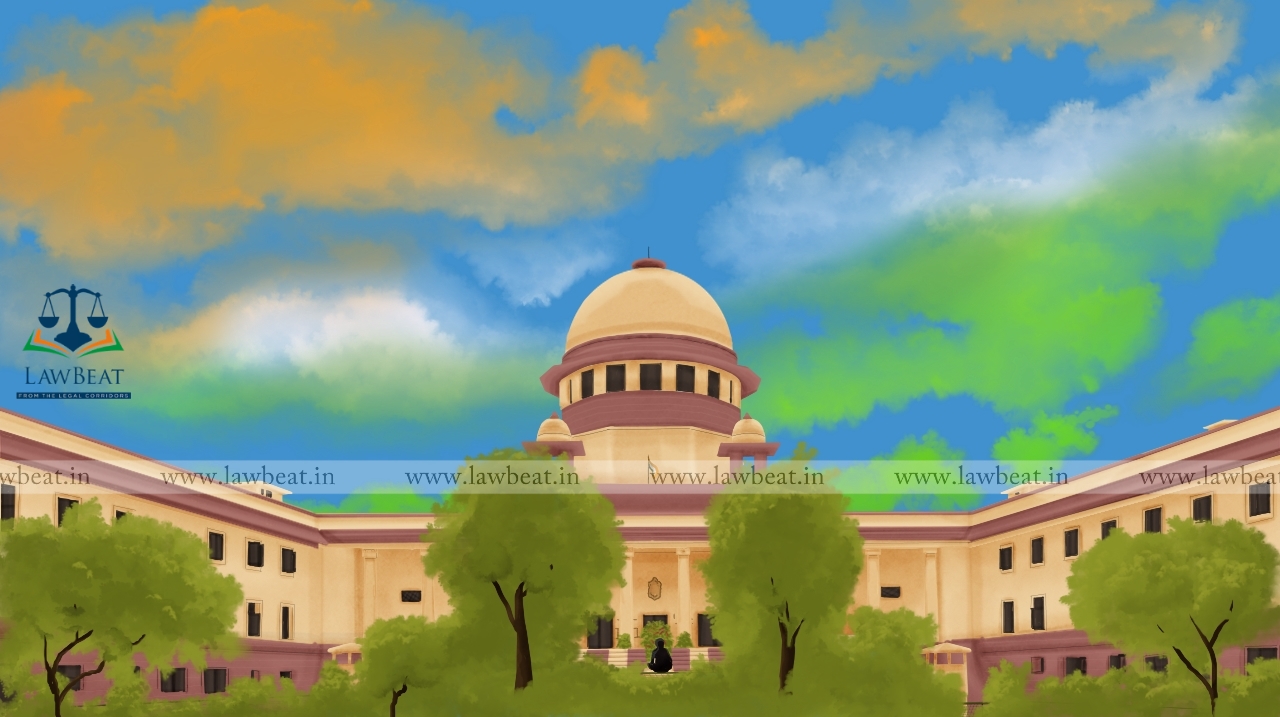Section 14 Limitation Act can be invoked even where the proceedings before the wrong forum have not been terminated: Supreme Court

The Top Court in its judgment dated March 22, held (i) Delay for filing application under Section 7 IBC can be condoned even in the absence of a formal application under Section 5 Limitation Act, 1963 (ii) Exclusion for computation of Limitation provided under Section 14 Limitation Act is applicable to Section 7 IBC (iii) Section 14 Limitation Act can be invoked even where the proceedings before the wrong forum have not been terminated.
A Division Bench of Justice Indira Banerjee and Justice Hemant Gupta, while dismissing the present appeal, observed, “If, in the context of proceedings under Section 7 or 9 of the IBC, Section 14 were to be interpreted with rigid and pedantic adherence to its literal meaning, to hold that only civil proceedings in Court would enjoy exclusion, the result would be that an applicant would not even be entitled to exclusion of the period of time spent in bona fide invoking and diligently pursuing an earlier application under the same provision of IBC, for the same relief, before an Adjudicating Authority, lacking territorial jurisdiction This could not possibly have been the legislative intent.”
The instant appeal was moved under Section 62 IBC, 2016, against a judgment and order dated 22.11.2019 passed by the NCLAT, dismissing Company Appeal filed by the appellants, challenging order dated 25.04.2019 of the NCLT, Kolkata Bench, admitting the application filed by the Financial Creditor, the Respondent 1 herein.
The application was filed under Section 7 IBC, initiating the Corporate Insolvency Resolution Process against the Corporate Debtor, Debi Fabtech Pvt. Ltd.
Issues
(i) Whether delay beyond three years in filing an application under Section 7 of IBC can be condoned, in the absence of an application for condonation of delay made by the applicant under Section 5 of the Limitation Act, 1963?
(ii) Whether Section 14 of the Limitation Act, 1963 applies to applications under Section 7 of the IBC? If so, is the exclusion of time under Section 14 is available, only after the proceedings before the wrong forum terminate?
Observations
On issue 1, the bench noted, “Although, it is the general practice to make a formal application under Section 5 of the Limitation Act, 1963, in order to enable the Court or Tribunal to weigh the sufficiency of the cause for the inability of the appellant/applicant to approach the Court/Tribunal within the time prescribed by limitation, there is no bar to exercise by the Court/Tribunal of its discretion to condone delay, in the absence of a formal application.” [Reliance was placed on B.K. Educational Services Private Limited v. Parag Gupta Associates, (2019) 11 SCC 633, Babulal Vardharji Gurjar v. Veer Gurjar Aluminium industries Pvt. Ltd., (2020) 15 SCC 1]
Section 238A makes the provisions of the Limitation Act applicable to proceedings under the IBC before the Adjudicating authority and the Appellate Authority (NCLAT) ‘as far as may be’
The use of words ‘as far as may be’, occurring in Section 238A of the IBC tones down the rigour of the words ‘shall’ in the aforesaid Section which is normally considered as mandatory. The expression ‘as far as may be’ is indicative of the fact that all or any of the provisions of the Limitation Act may not apply to proceedings before the Adjudicating Authority (NCLT) or the Appellate authority (NCLAT) if they are patently inconsistent with some provisions of the IBC. At the same time, the words ‘as far as may be’ cannot be construed as a total exclusion of the requirements of the basic principles of Section 14 of the Limitation Act, but permits a wider, more liberal, contextual and purposive interpretation by necessary modification, which is in harmony with the principles of the said Section.
Section 14(2) of the Limitation Act which provides for exclusion of time in computing the period of limitation in certain circumstances, says, “In computing the period of limitation for any application, the time during which the applicant has been prosecuting with due diligence another civil proceeding, whether in a court of first instance or of appeal or revision, against the same party for the same relief shall be excluded, where such proceeding is prosecuted in good faith in a court which, from defect of jurisdiction or other cause of a like nature, is unable to entertain it.”
Answering issue 2, the Court said, “The IBC does not exclude the application of Section 6 or 14 or 18 or any other provision of the Limitation Act to proceedings under the IBC in the NCLT/NCLAT. All the provisions of the Limitation Act are applicable to proceedings in the NCLT/NCLAT, to the extent feasible.”
With respect to the extended question on applicability of Section 14 only after termination of proceedings, it was observed that Section 14 of the Limitation Act is to be read as a whole in order to achieve a holistic meaning of the provision. “A conjoint and careful reading of Sub-Sections (1), (2) and (3) of Section 14 makes it clear that an applicant who has prosecuted another civil proceeding with due diligence, before a forum which is unable to entertain the same on account of defect of jurisdiction or any other cause of like nature, is entitled to exclusion of the time during which the applicant had been prosecuting such proceeding, in computing the period of limitation. The substantive provisions of Sub-sections (1), (2) and (3) of Section 14 do not say that Section 14 can only be invoked on termination of the earlier proceedings, prosecuted in good faith”, noted the Bench.
Case Title: Sesh Nath v. Baidyabati Sheoraphuli Co-operative Bank Ltd | CIVIL APPEAL NO. 9198 of 2019
Law point/Statute involved: Sections 5, 14 Limitation Act, 1963 and Section 7 Insolvency and Bankruptcy Code, 2016.
Counsel for the Appellants: Mr. Siddhartha Dave
Counsel for the Respondents: Mr. Sai Deepak
